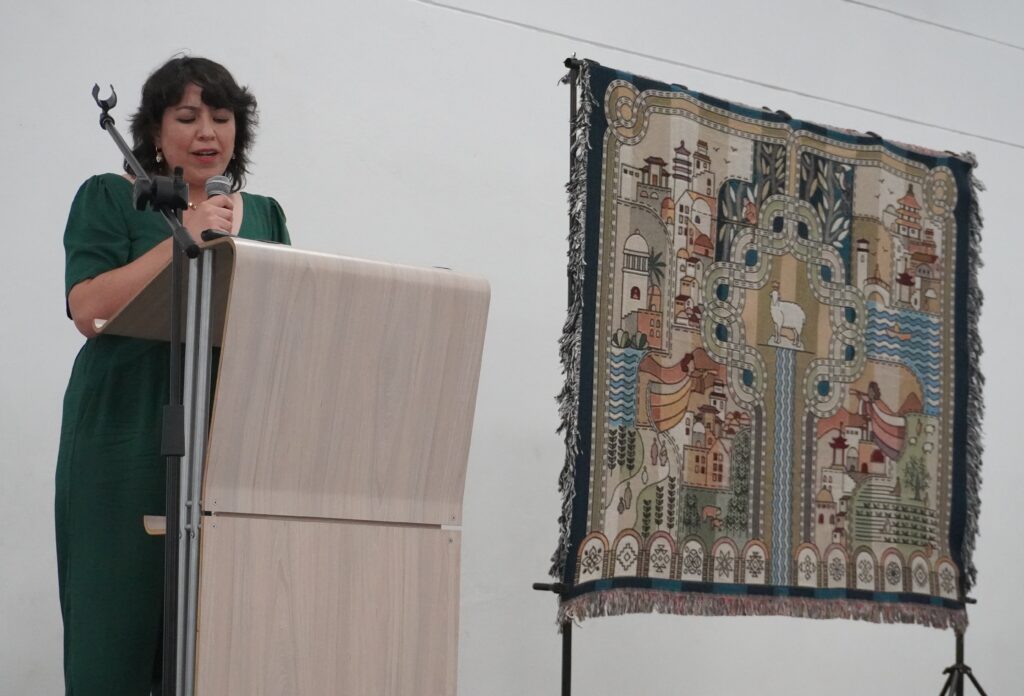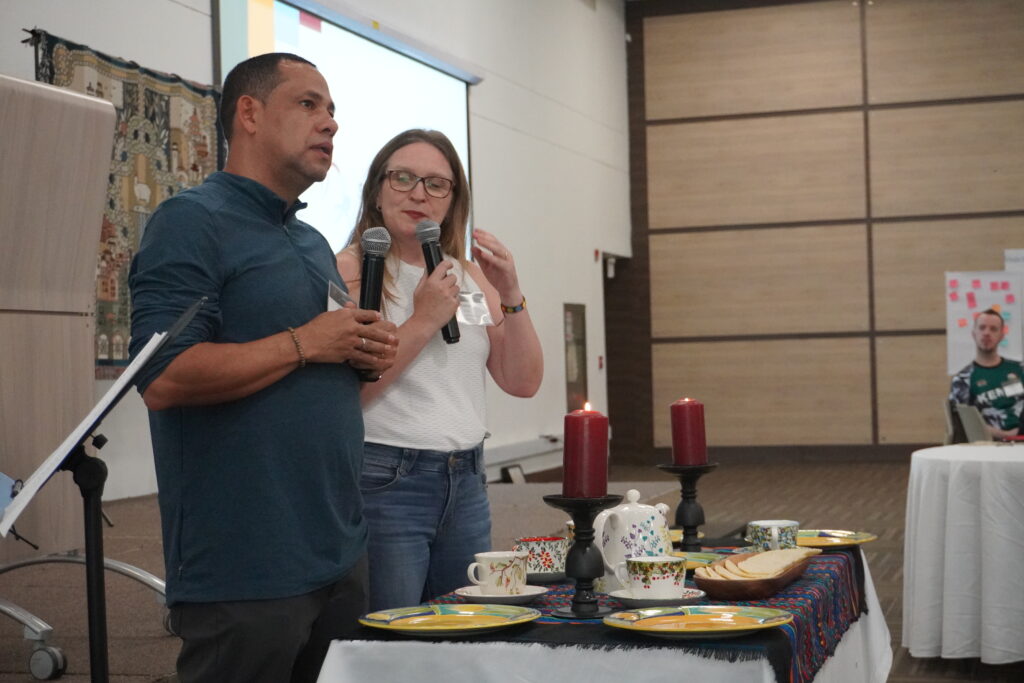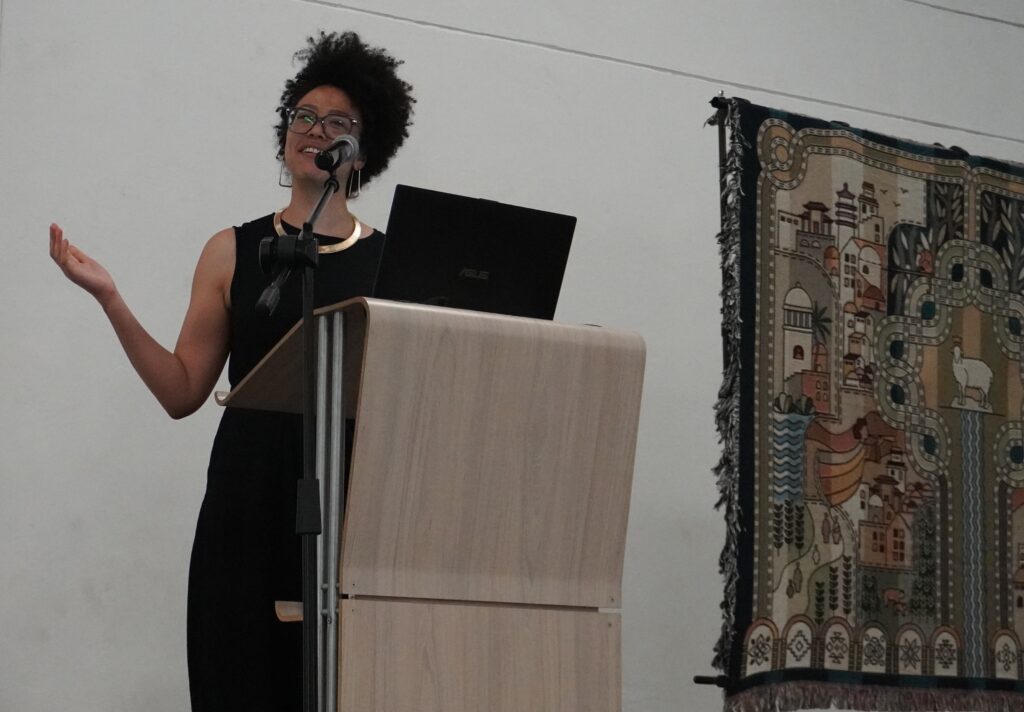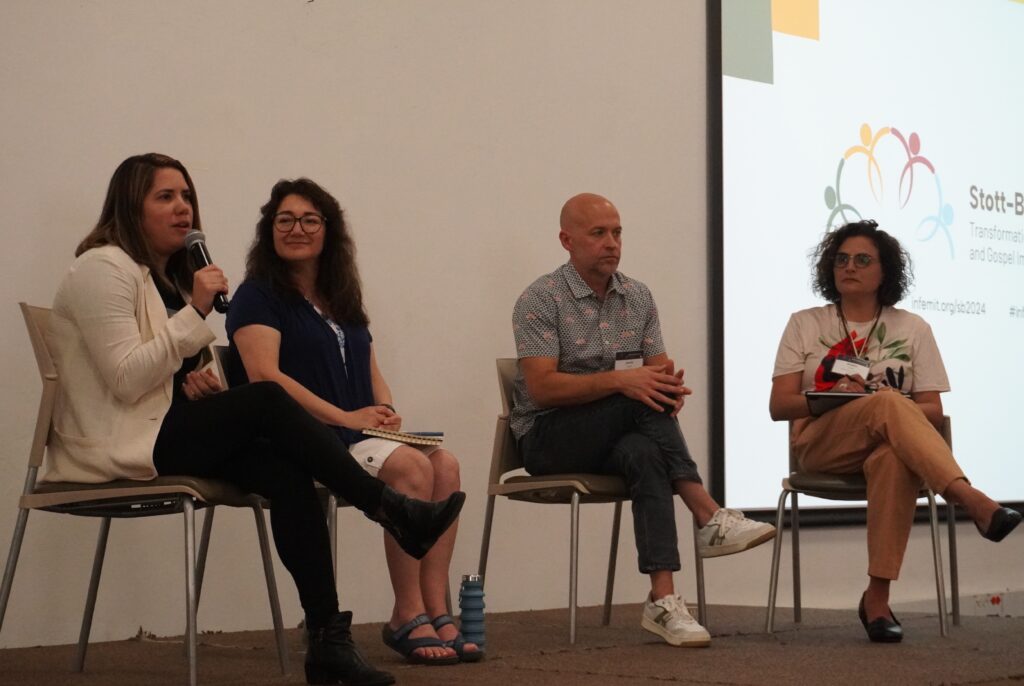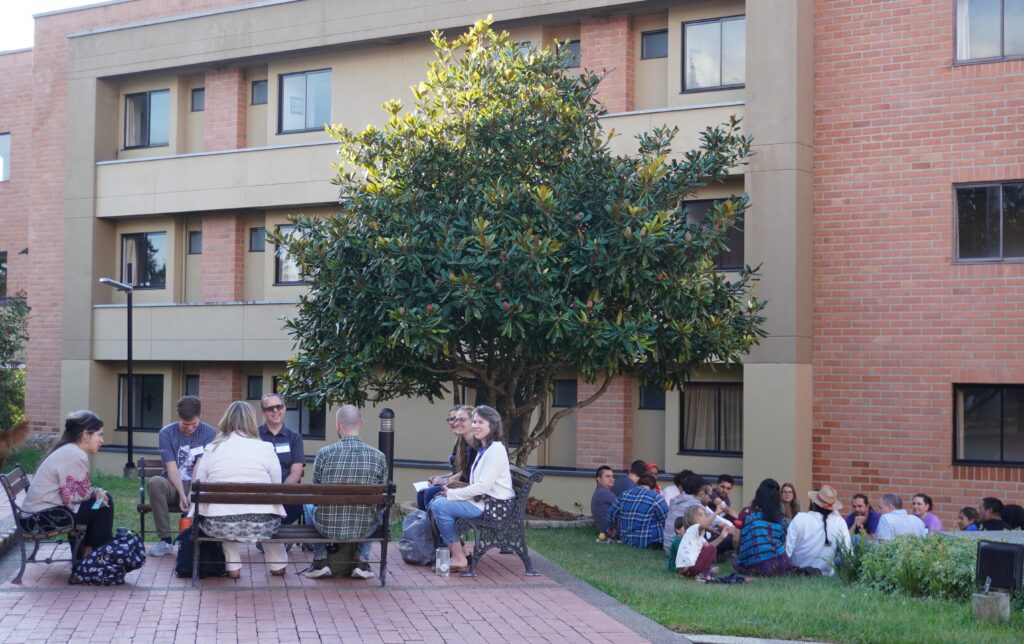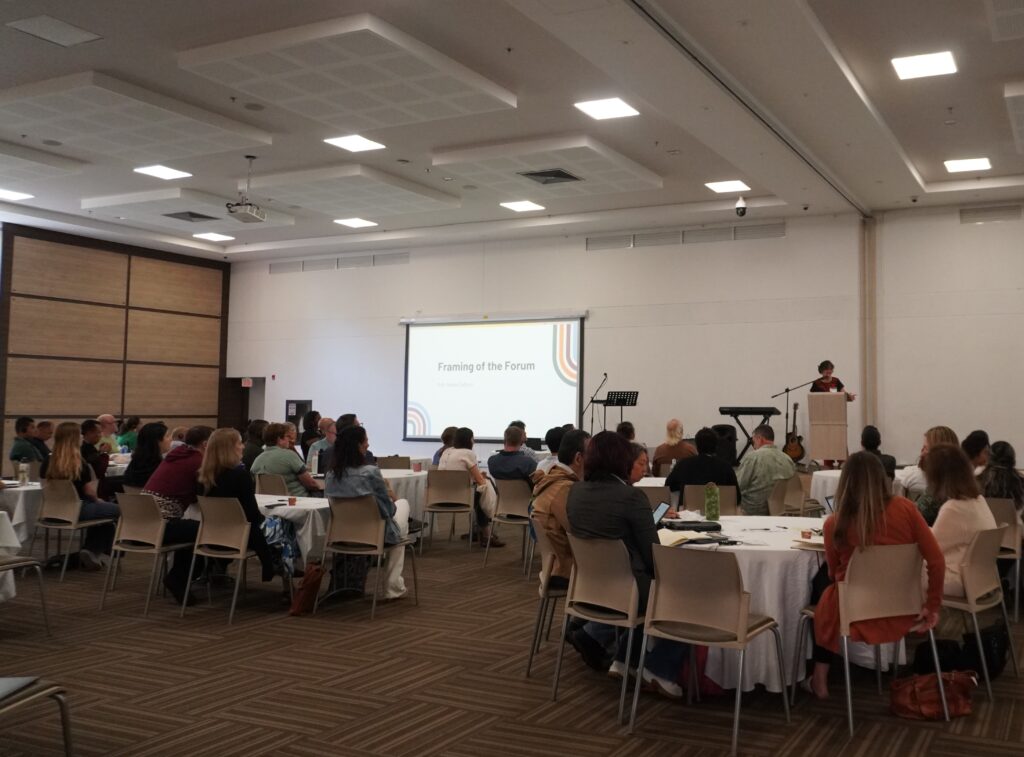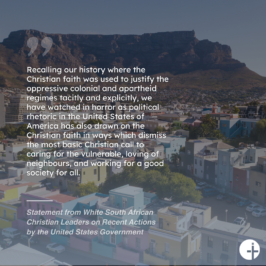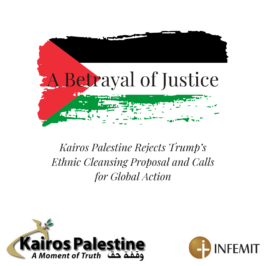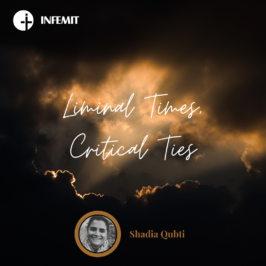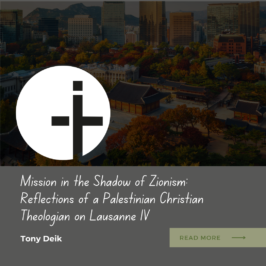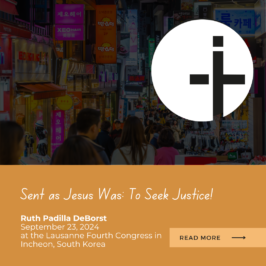
And the one sitting on the throne said, “Look, I am making everything new!” And then he said to me, “Write this down, for what I tell you is trustworthy and true.” Rev. 21:5 (NLT)
The International Fellowship for Mission as Transformation (INFEMIT) just concluded its Stott-Bediako Forum on Transformation Revisited: Mission and Gospel Imagination. The process began over a year ago when a small group of contributors met online to share and reflect on the initial findings that each brought to the table. It continued in Rionegro, Colombia, from July 15-17, 2024, when 116 people from 30 different countries gathered in person to listen, reflect, and respond together. Then, for the next several months, the conversation was widened through online sessions that involved short presentations and deep dialogue with participants from across the world.
Through this process, we experienced, and still celebrate, the diverse languages, images, cultures, and practices of the Kingdom of God expressed by the participants. Our goal was to listen and gain from one another creative visions for faithful gospel witness in our world today. Altogether, we shared and reflected upon 48 presentations that included art and liturgy, Bible exposition, case studies, and interdisciplinary academic research. Many of these presentations were offered as independent contributions either online or in person. Sixteen of them composed the backbone of the forum, from which the themes emerged for discussion. Here, we share some brief highlights from our reflections and responses to these main topics presented.
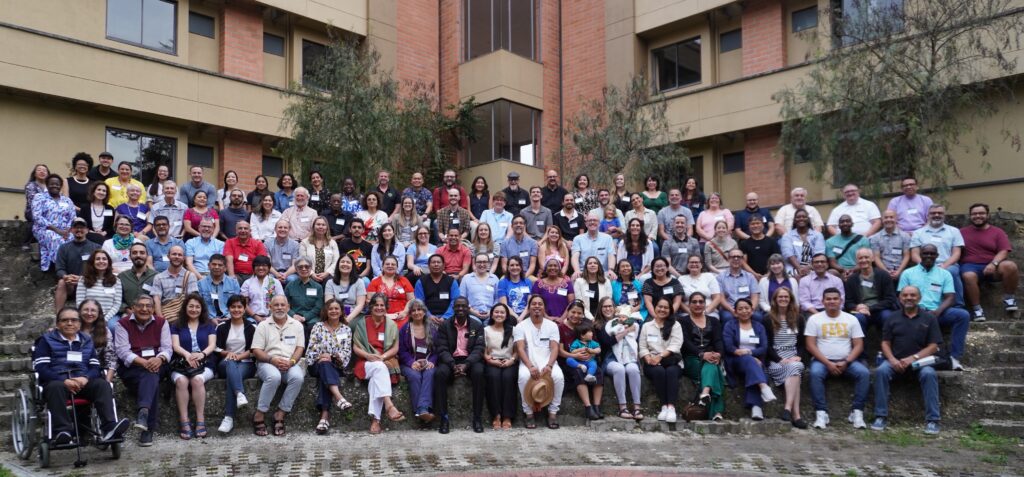
Transformation and Mission Revisited
Al Tizon (USA) and Gitonga Fredrick Nyaga (Kenya)
A characterization of “Mission as Transformation” that emerged in the early days of INFEMIT expressed transformation as “a change from a condition of human existence contrary to the will of God to one where a person is able to enjoy the fullness of life in harmony with God” (“Transformation: The Church in Response to Human Need” Wheaton, 1983). INFEMIT has since championed this paradigm of mission, which brings together the rich perspectives of people like Ron Sider, Rene Padilla, Samuel Escobar, Kwame Bediako, Melba Maggay, and Miriam Adeney, among others. Mission as Transformation centers on commitments to a holistic gospel, contextual theologies, praxis, and the preferential option for the poor, among other key characteristics of the movement. As we revisited these ideas, the panorama of our day seemed strikingly similar to the early days of the movement: with the popularization of shallow expressions of the gospel, the separation of evangelism and social justice, and the colonial exportation of Western theological paradigms. While transformation today will take on new characteristics, we renewed our commitment to the pursuit of Gospel holism, justice, and the formation of disciples and communities that embody God’s Kingdom.
Gospel Imagination
James Padilla DeBorst (USA, Costa Rica) and Sara Améstegui Deik (Bolivia)
Is the Church due for another reformation? According to Sara Améstegui, this has tended to occur approximately every 500 years. The current church models are dominated by colonialism, with much of today’s theological reflection used to justify the priorities of those in power. This is especially evident in theologies like Christian Zionism that that use “stock stories” (stories that make up the collective consciousness of a dominant group) to enforce hegemony. She invited us to reflect on counter-stories that can shift the narrative to learn from the Church at the margins of power. James Padilla DeBorst highlighted many of the popular and enticing imaginaries present in society and the churches today before he offered the Lord’s Prayer as an alternative example of a justice seeking imaginary and proposed that participants grapple with the question of what other tools and examples can help us develop a fresh imagination for the Church today as it seeks to live out the gospel. The rest of our time together was filled with stories and examples that emerge from communities on the ground.
God’s Future: A Fresh Eschatology in Missiological Perspective
Marcel Macelaru (Romania) and Kulli Toñiste (Estonia)
Two presenters contributed reflections on how to reimagine our eschatologies. Kulli Toñiste underscored that Revelation, when read carefully, can provide a powerful resource for this. She encouraged us by drawing attention to the non-final aspects of John’s visions, which offer hope that the future is not set in stone and moves us away from fatalistic interpretations of the end times. Marcel Macelaru highlighted some of the dangers of being trapped in either an escapist or a militaristic eschatology. He challenged us that the Missio Dei (mission of God) should define our eschatology and not the other way around. In other words, our understanding of God’s purposes for the world and our part in it forms what we expect in God’s future. We were encouraged to approach eschatology not as a finished script, but rather as a future unfolding in which we are participants.
Culture-making and Mission
Varughese John (India) and Tito Paredes (Peru)
Among the ways in which the Church can contribute to transformation is through its engagement with culture. Varughese John noted some different ways in which the Church has engaged culture in the past, ofttimes prioritizing ideas and beliefs, applying a conquest mentality, and favoring truth and goodness over beauty. He stressed that our cultural engagement should be centered on the person of Christ, enabled by the Holy Spirit, and done as a community in all of the areas of human life in which we are active in daily life. Tito Paredes looked to the history of INFEMIT, identifying intercultural engagement as a central aspect of our identity. He highlighted the Pentecost and Revelation narratives which both draw our attention to the intercultural nature of the people of God, urging us to take an approach of actively embracing interculturality to better understand the multiform grace of God.
Contemporary Responses to Missiological Challenges
Nina Balmaceda (Peru, USA) and James Huff (USA), Alejandra Ibarra (Mexico), and Shadia Qubti (Palestine, Canada)
We engaged specific missiological challenges of our day and explored ways we might respond faithfully in light of the Gospel. We explored issues of gender inequality and violence; mass migration, its causes, and the challenges that people face along the road; war in Palestine and the reality of colonial theologies that are used to justify conquest and silence people on the margins. We were encouraged by the work of churches, nonprofits, artists, and individuals on the ground who are navigating complex realities, embodying a prophetic witness, and accompanying or standing in solidarity with the marginalized.
Art as Language of Imagination
Thandi Gamedze (South Africa) and Daniela Améstegui (Bolivia, Canada)
The role of art was highlighted as a pathway for envisioning our world transformed, as well as for resisting and denouncing injustice. Thandi Gamedze shined a light on the colonial imagination that perpetuates the hierarchies of power and convinces us to maintain the status quo and invited us to a prophetic imagination that helps us envision new possibilities. She offered examples of her own poetry and others’ artwork that question the powers and cultivate dialogue and solidarity among the oppressed. Daniela Améstegui presented her original artwork, based on Revelation 21 and 22, that weaves images from these passages in a way that is both familiar and foreign, inviting us to imagine our homes and the cities we love in a future in which God dwells among us and all sin and brokenness fall away.
Society Transformation in the Biblical Story
Athena Gorospe (Philippines), Tony Deik (Palestine, Bolivia), and Ruth Padilla DeBorst (Argentina, Costa Rica)
Several speakers led us through Bible passages that contribute to our imagination and our pursuit of holistic transformation. In Judges17-21, we looked at a community that used spiritual practices as a cover for war and violence and appeared to pursue justice, while really protecting the male ego. Leading us through this passage, Athena Gorospe urged us to attend to the root causes of injustice, interrogating our own blind spots, and to practice social discernment so that we can discern Christian faithfulness vs. “God-talk” at the service of other agendas. With Tony Deik, we examined the life of the early Church, for whom “holiness and justice” were inseparable and directed toward the oppressed and the marginalized. Finally, we were invited to hope and imagine “all things new” in the order of the Kingdom of God, as Ruth Padilla DeBorst led us through Revelation 5:21-22. Like today, the days of the disciples to whom John of Patmos wrote were dominated by injustice and oppression. John’s vision poses the paradox of a Lamb who conquers evil, not with power, wealth, or violence, but with his apparent failure. We are invited to embrace this good news and follow his example as we pursue justice and renewal for our world.
The Stott-Bediako Forum was characterized by reflection through word, art, and story; growing relationships and rich dialogue; and worship attuned to the realities of our day. Thus, we began together to explore steps forward as we seek to live as faithful witnesses in our local and global contexts. We recognize that this is an unending journey, as we continue to reflect and learn together. We invite others to join us by checking out Forum resources (presentations and study guides) made available online and participating in future conversations.
